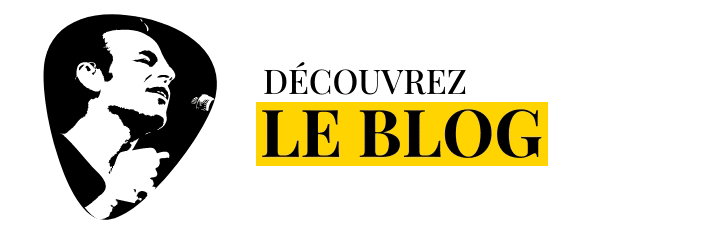

|
JEAN-JACQUES GOLDMAN
|
JEAN-JACQUES GOLDMAN
Billboard's Starfile (1988)
Jean-Jacques Goldman is a solitary figure who loves a crowd - not to lose himself within it, but to find himself. It is for this audience that he composes and writes, and it is for the crowd that he comes out of his lair. Goldman's songs are the lyrics and the music of youth, but they reach out to the mother in her forties as much as to the leather-jacketed youngster from the fringes of the big city.
He is the hunter-singer, one of the few to bridge the generation gap.
His public is broad indeed. Never in France has an artist filled the concert halls like Jean-Jacques Goldman. In France, he attracted 100,000 people to his season at the Zenith in Paris. At the Forest National, in Brussels, Belgium, 64,000 people were there. And again in Paris, in May 1988, the box office registered 175,000 ticket-holders.
This self-taught musician, who went into pop music straight after university, has no need of brash publicity or glaring posters. His concerts are often full without a single image of him appearing on the walls of the provincial French cities where he is so adored. The seats at his concerts seem to be occupied by word of mouth.
It was back in 1973 that Goldman first appeared on stage with the group Tai Phong, when he performed vocals and guitar. At University, he was nicknamed Benny, because his surname was so like "Goodman," and his life there was dominated by his music, with Aretha Franklin a very strong influence at the time.
But Tai Phong lasted only a few years and Goldman was back on his own, where he really belonged. Within just a few years he had become the most popular pop singer in France, thanks to his now evergreen first big success "Je the donne," which sold 1.5 million copies.
This was the top title on his album "Non homologué," (or "Not Confirmed"), which in 1986 sold more than 1.2 million copies, the highest album sales in France that year.
"Je te donne" had figured on a single, which went platinum, in which Goldman sang in both French and English with his lead guitarist Michael Jones.
His sales in 1987 reached 2.3 million and the following year he was awarded a diamond disk for sale of 1 million LP's of his double album package "Entre gris clair et gris foncé," ("Between Lignt Gray And Dark Gray"), along with double platinum for his live album. The single "Puisque tu pars" ("Since You Are Leaving") from this album earned a silver award, with the result that in 1988 Goldman sold 2.4 million record units.
This achievement placed him ahead of Michael Jackson, who registered French sales of 2 million.
Goldman, who rarely gives interviews, has nevertheless let slip over the years a few comments about himself. As he once said: "I am not the best singer in the world, but I must be among the most hard-working. I take notes, I observe, I watch, I am an actor and a voyeur at the same time," adding: "It's like the audience who taught me how to perform, who made me like them. At heart I am the opposite of a performer. My energy - it's the public who transmits it to me."
Comments like this haven't helped the media get to the real heart of Jean-Jacques Goldman. He has more answers than they have questions. Shy and reserved, he's a fragile being, who has grown tall all alone.
Goldman admits that he does not have anything really interesting to say outside his songs. "I say everything in my records, my concerts and in my videos."
He keeps his success at arm's length and once, when described as a sex symbol, he remarked: "One day a girl told me I had deep eyes. It's funny because no-one had noticed I had deep eyes when I was an unknown. When you sell 100,000 albums, you're not bad; at 300,000, you're interesting; and at half-a-million, you're donwright irresistable."
The epitome of an anti-star, Goldman sleeps 10 hours a night, enjoys the company of his three children and playing tennis with his musicians, and drives an ordinary saloon car. He's the big brother one had always wanted, which is perhaps one of the factors behind his success.
Described as a poet of the end of the century, his songs are simple, his language ordinary and his sensitivity combines joy, tenderness, pain and humility. The themes of his lyrics always seem to belong to some distant corner of our experience.
Critics wonder how a performer with such and apparently anodine style can provoke such a sensation. So what excites his fans? Goldman keeps out of the spotlight, away from the mass media. This craftsman who has developed his work to the level of the masterpiece describes himself simply :
"Songs are decidedly more beautiful than those who sing them. My approach is a little like the holiday club which tells its customers not to be just stupid sunbathers. So as I write songs, I prefer them not to be too stupid, for what is most important is to make those who listen to them start singing."
Goldman's anti-exhibitionism is not only a professional rule, but a way of life. His double album "Entre gris clair et gris foncé" was an offering to all those who want to break the bars of their cages. The culmination of his seven years as a popular artist, one album illustrates the variety of Goldman's style, its aggression and its depth. It's a kaleidoscope in which Goldman defines the world he wants to live in; a world without racism, without indifference and without egoism. The other album, the dark gray side, is like Goldman himself, without compromise. As he wrote on the sleeve: "I began with a single album, but the more I advanced with the work, between sequences and computers, and automatic digital desks, the more I felt the need to take, from time to time, a real instrument and to play live with just a few musicians.
"With all the sweat, with the mixer at my hand, just like before, when I didn't have all this sophisticated equipment. This is how the second album was born, in a small studio, with songs which gave me pleasure, whithout the paraphernalia of modern machines."
Little matter that the arrangements are a little bare, for what emerges from this album is a real impression of truth, and of melancholy. The son of a generation weary of trickery and revolutions, Goldman sings for such causes as Band Aid, SOS Racisme, l'Ethiopie and Resto du Coeur, but refuses to be bought out politically.
He says: "Politics interest me, but I am neither convinced enough, nor credible enough, to persuade people to share my opinions. Futhermore, I don't think my views are superior to those who buy my records.
"By singing, one gives a little pleasure. I think that is very worthwhile, but I would be frightened if I had to make people think that I was also carrying a message or a new idea."
A little while ago, Goldman was asked what he had more than the others and his audience replied: "There's no mystery, just a little bit of magic."
Goldman's last album, which came out in March, is called "Traces." He recalls: "In May 1988, my musicians and I embarked on a tour taking in 147 concerts. We started in Africa-Senegal, Ivory Coast, Togo, Gabon, Zaire and then Mauritius, Reunion Island and Madagascar in the Indian Ocean, before returning to France. We appeared in Paris and a number of provincial cities with the Canada group, Beziers, Montpellier, Frejus, Orange, Nimes, Vienne and Annecy. We ended the following September with concerts in Belgium and Switzerland.
"The album is for us the record of nearly a year and for the public that of just one night. And not a perfect record at that, but partial and fragmented, lacking in the essence of the moment and the real truth of being present. All that we were unable to capture at the time, because of the excesses of emotion, will gradually take a place in our memories but in time."
"Traces," which is available in all configurations (LP, cassette, video and CDV), will keep the curtain open on Goldman's great tour, a tour which was not to end in Europe.
For among the audience at the Zenith in Paris was Dick Allen, a partner of the renowned American tour organizer William Morris. And Goldman was persuaded to cross the Atlantic. He performed at the Palladium in New York on March 3 this year, which prompted the critic of the New York Times to describe him as "the normal pop idol."
Goldman is now a universal star and, after New York, his itinerary was to take him - his T-shirt, his sneakers and his guitar - to Moscow and Leningrad, to Singapore, Bangkok, Peking and Tokyo, to New Caledonia and Tahiti in the Pacific, and from Los Angeles to Montreal, before returning home at the end of the summer.
In all modesty, too: "I apologise to all those I have disappointed or shocked by an attitude, a word, an absence or a silence."
Retour au sommaire - Retour à l'année 1988